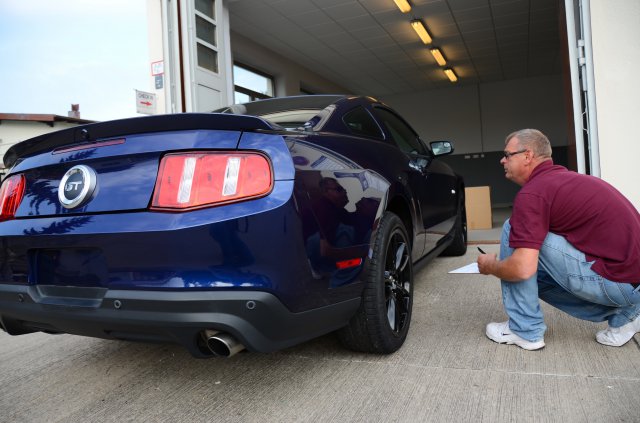We handle cases across the United States. Allen Stewart is licensed to practice law in Texas, California, New York, Pennsylvania, Missouri, North Carolina, Ohio and Arizona.
What Are ‘Substantial Defects’

Lemon laws protect consumers who buy vehicles with “substantial” defects, though what a consumer considers substantial may differ from the law’s definition.
Substantial defects trigger lemon law protections, while minor defects fly under the radar and are the consumer’s problem to deal with.
American lemon laws refer to “noncomformities;” conditions that cause a vehicle to not conform to its warranty that affect its safety or value.
Andrew Ross, Texas lemon law attorney with Allen Stewart, P.C., said the Texas Lemon Law defines a “serious safety hazard” as a life-threatening malfunction or nonconformity that either substantially impedes a person’s ability to control or operate a motor vehicle, or creates a substantial risk of explosion or fire.
Ross said what exactly constitutes a “substantial impairment of use or market value” isn’t defined in the law itself, per se, and must be determined by a judge, jury or arbitrator. The Texas Court of Appeals in Austin, Ross said, applied a “reasonable-purchaser” standard for judging impairment of value or use and considers whether a defect or nonconformity hampers the intended normal operation of the vehicle.
Substantial defects aren’t limited to those affecting the engine or safety systems. Ross said the court decided in Texas Dep’t of Transportation., Sherman v. Gulf Stream Coach, Inc. that a faulty air conditioner “substantially impaired” the vehicle’s intended use.
Ross said while state lemon laws may not cover minor defects, federal law can help.
“The Magnuson-Moss Warranty Act can be used to seek financial relief for consumers that experience defects that do not create a serious safety hazard or substantially impair the use or market value of the vehicle,” he said.
Ross said it is up to the judge, jury or arbitrator to decide whether a defect counts as substantial or minor.
“Triers of facts are human and will no doubt use their personal opinions and feelings to decide what is substantial,” he said.
Your vehicle’s manufacturer is legally required to fix any recalled problems for free. If the dealership refuses to fix the part or tries to charge you for the repair, contact the manufacturer immediately. The Highway Safety Act of 1970, which created the NHTSA, requires car manufacturers to pay for the recall and replacement of a defective part.
If the manufacturer fails to repair, replace, repurchase, or provide your recalled vehicle’s loss value, they are violating the warranty and a lawyer may be able to assist you. Lemon law attorneys help their clients by dealing directly with the manufacturer on the clients’ behalf, working to promptly resolve the issue and get their clients back on the road. Thanks to the Magnuson-Moss Warranty Act, attorneys can seek their fees directly from the manufacturer, meaning a client can obtain legal counsel without having to pay attorneys’ fees directly out of pocket.
The lemon law attorneys of Allen Stewart, P.C. can help you use the Magnuson-Moss Warranty Act and navigate the often-complex legal system to get you the just compensation you deserve. They have decades of experience in taking on big corporations, including auto manufacturers, and won’t back down from a legal fight.
